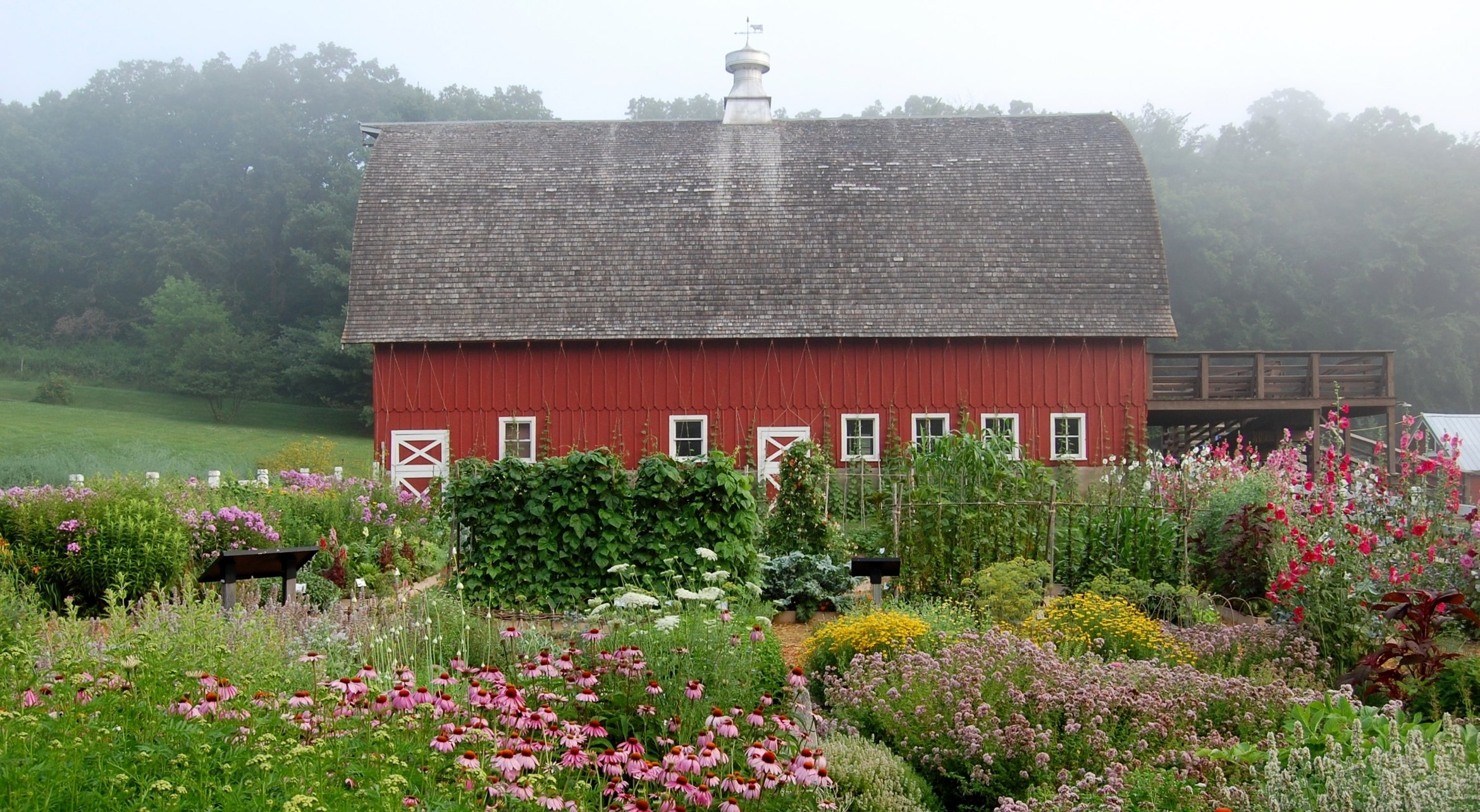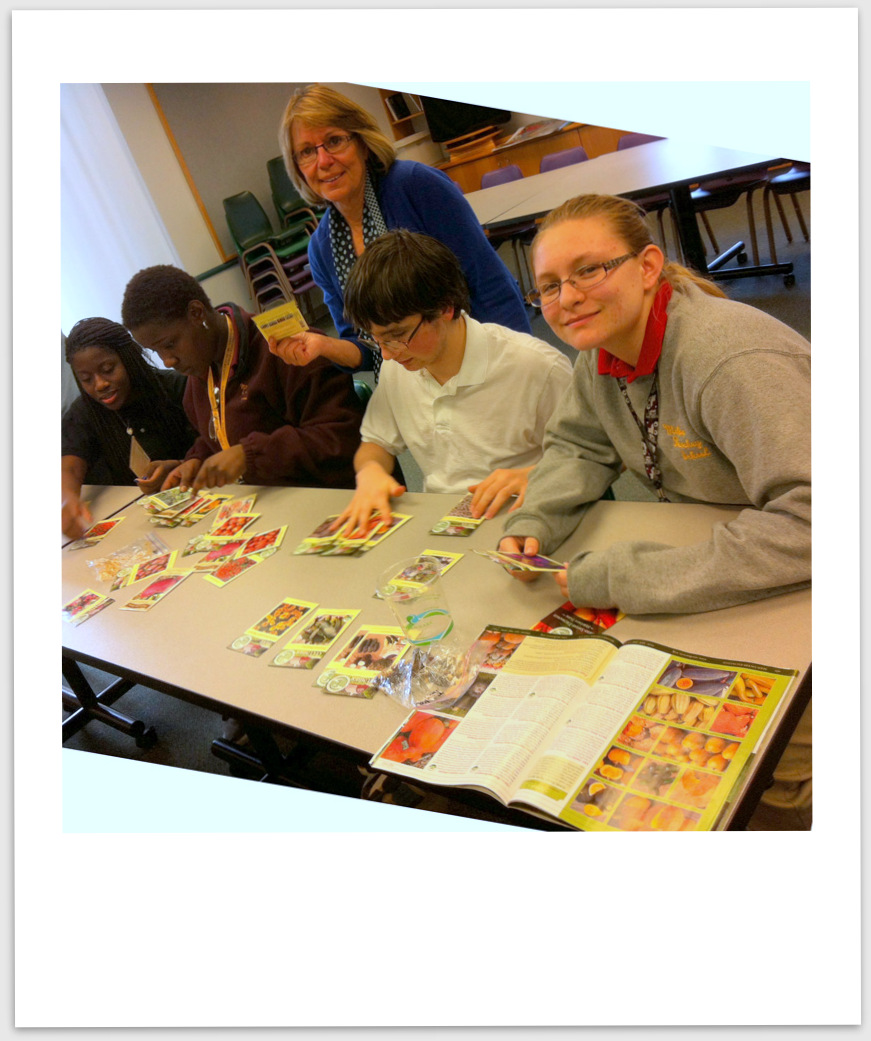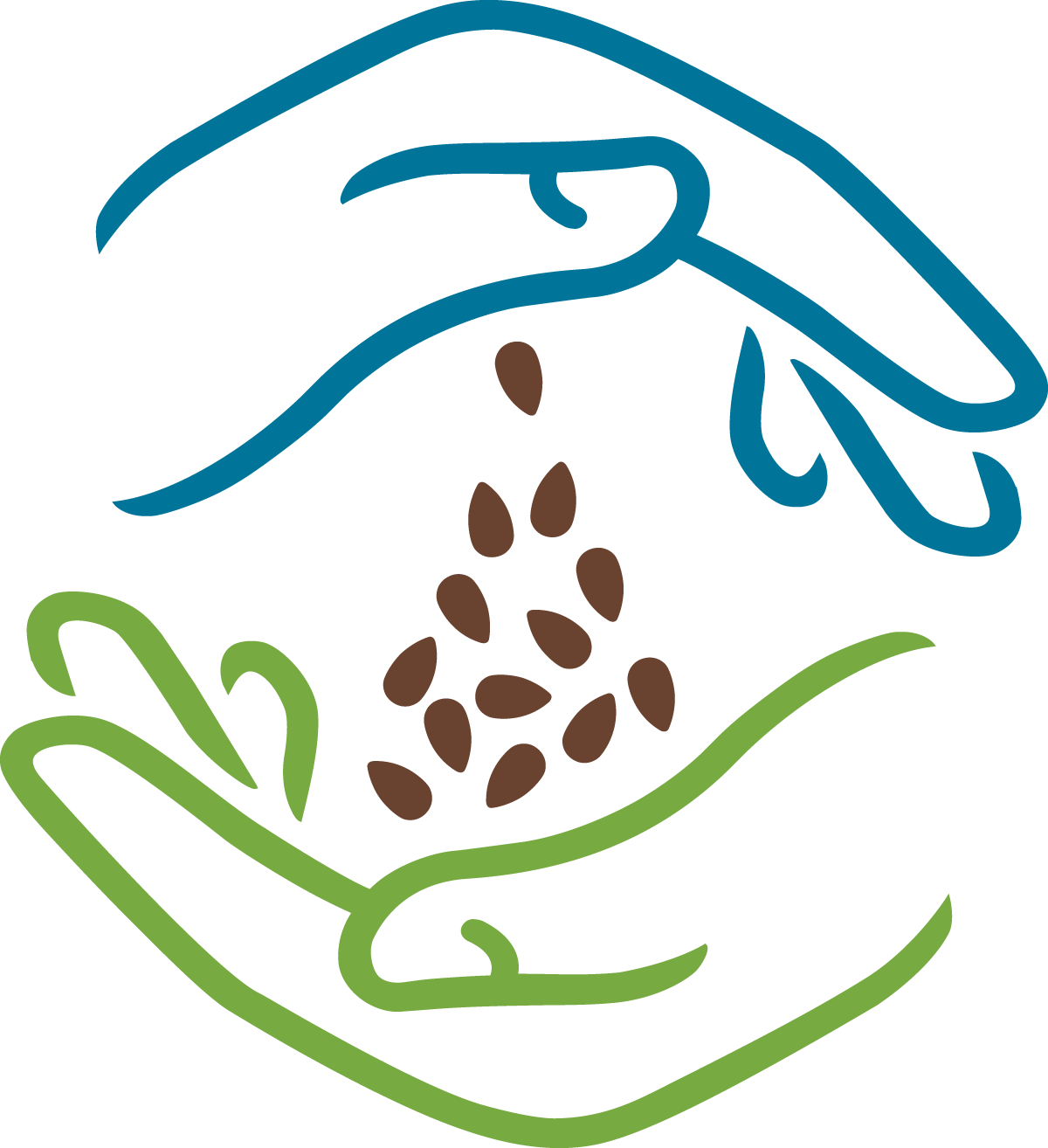Jeannette Beranger and Alison Martin will be at the 2013 Seed Savers Exchange Conference and Campout representing the American Livestock Breeds Conservancy. They will be teaching a workshop titled Evaluating a Poultry Flock for Breeding. We asked them to fill us in on what to expect from their workshop.

Backyard Chickens Are Back!
By Alison Martin, American Livestock Breeds Conservancy

Look around you: more than ever, chickens are showing up in back yards or being incorporated into sustainable farms. No matter the size of your flock, a question that comes up each year is “which of these chickens should I keep as breeders for next year?” Our workshop, Evaluating a Poultry Flock for Breeding, will give you the hands-on skills and knowledge to make those decisions.
For those of you who don’t know us, the American Livestock Breeds Conservancy (ALBC) works with farmers to conserve heritage breeds of livestock and poultry. Like heirloom plants, America has lost many of the breeds that were important in times past. In fact, in 1976 organizers of a Bicentennial celebration at Old Sturbridge Village in New England had trouble finding animals that would have been on the farm in 1776. The more they thought about it, the more this bothered them, and together with concerned breeders and scientists, they formed the (then) American Minor Breeds Conservancy. In the 36 years since, we haven’t lost a breed!
Unlike Seed Savers Exchange, ALBC doesn’t sell animals. For one thing, they’re harder to gather and store than seeds! We do facilitate participatory conservation. Like Seed Savers Exchange, we help breeders network with each other so they can share and exchange breeding stock and best practices. Our Master Breeder project documents the wisdom of long-time breeders, and passes that along to new breeders. We have restored productivity to breeds that have been neglected, and brought other breeds back from the brink of extinction. All this and more conserves agricultural biodiversity and maintains options for farming.

The time is right for heritage poultry and livestock. Many have regional adaptations and history that fit right in with the local foods movement. Farmers are discovering that their hardiness and thrift make them a wonderful fit for small farms, and consumers who care where their food comes from are discovering the benefits of rich and diverse flavors. And heritage animals complement heirloom seeds well, as you’ve probably seen at Heritage Farm.
Jeannette and I are excited about our first visit to the SSE Conference and Campout. We want to meet with you and hear about your homesteads. And we want to share our experience – between us we have more than 50 years experience with poultry! This year we helped Seed Savers Exchange source some excellent Buckeye chickens, and that’s what we’ll be evaluating in the workshop. The birds selected as breeders will be banded, and at the end of the season they will go to the winner of the Mother Earth News Heritage Chicken Giveaway!
If you would like to learn more about Buckeye chickens, chicken assessment, or ALBC, check us out online at www.albc-usa.org. See you in Decorah!























